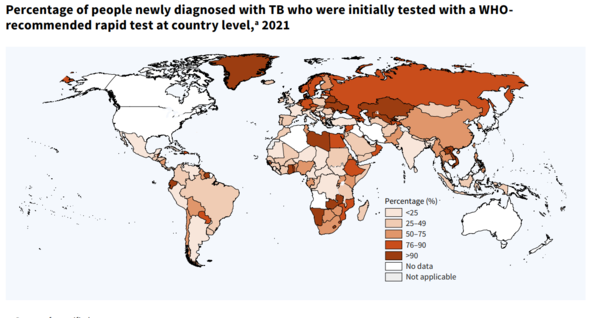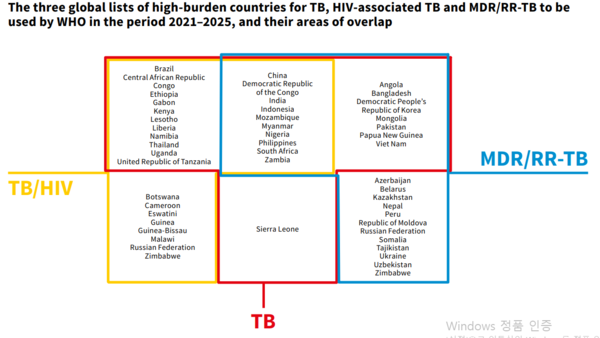North Korea reported a total of 133,000 tuberculosis patients in 2021, a slight decrease from a year earlier but still considered relatively high, the World Health Organization (WHO) said in its Global Tuberculosis Report 2022 on Thursday.
Tuberculosis is caused by bacteria called mycobacterium tuberculosis, which attacks any part of the body including the lungs, kidneys, spine, and brain.
Poor nutrition, in particular, can weaken the body’s defense and is a strong risk factor for TB. A U.N. report said in July that 41.6 percent of North Korea’s 25 million population was undernourished.
The 2021 number of TB cases in North Korea was down by 2,000 from the previous year.
The incidence of TB per 100,000 population was 513 in 2021.
However, the actual TB numbers are believed to be higher because the reclusive regime’s lockdown in the wake of Covid-19 made it difficult for staff of international organizations to monitor the situation directly.

The WHO’s annual TB report classifies 30 countries as “high-burden countries” for TB.
This year, North Korea was listed as a high-burden country for both TB and multidrug-resistant tuberculosis (MDR)/ rifampicin-resistant(RR) TB, as it was last year.
Among high-burden countries, those with TB incidences higher than 500 per 100,000 population include the Philippines (650), Lesotho (614), the Central African Republic (540), and South Africa (513).

Among North Korean TB patients, only 66 percent received treatment and the patient infection mortality was 17 percent, the WHO report said.
Undernourishment was cited as the major cause of TB in North Korea, with 53 percent of TB patients reporting it. Other causes included smoking, diabetes, and alcohol use disorder.
On Sept. 30, Unification Minister Kwon Young-se said North Koreans, similar to South Koreans, have the right to be respected for their own lives and to live safely and free from disease.
“The Republic of Korea, as a democratic nation's duty, would always keep the door wide open to help protect North Koreans’ right to life and health,” Minister Kwon said in his opening remarks for the plenary session of the Health and Medical Cooperation Platform on the Korean Peninsula.
The platform comprises the government, international organizations, private organizations, and academia to discuss inter-Korean health and medical cooperation.
Related articles
- ‘N. Korea will accept South’s aid only when Seoul gives plausible justification’
- Civic group calls for easing sanctions to help N. Korea’s Covid-19 combat
- Amid dwindling Covid-19 cases at home, President Yoon repeats offer to help North's pandemic battle
- Think tank presents policy tasks for ‘health aid to N. Korea’
- Inter-Korean biomedical cluster suggested for health cooperation
- RIGHT Foundation launches grants to achieve TB eradication by 2030

